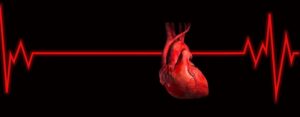
For the first time in history three patients diagnosed with heart failure have spontaneously reversed the condition leading to the promise of new treatments that could save hundreds of thousands of lives.
Surprise Reserval
According to a study published in the New England Journal of Medicine, three men aged 68, 76, and 82, had been diagnosed with heart failure caused by the buildup of toxic proteins.
The condition, known as a form of amyloidosis, had been considered incurable. As a result, about half of patients die within four years of diagnosis.
Researchers at University College London and the Royal Free Hospital launched the study after the 68-year-old showed signs of improvement without medical intervention. As a result, researchers began looking for patients with a similar response. Combing through 1,663 cases, they found two other patients whose conditions had reversed.
Potential New Treatment
Running medical tests, including blood work, the researchers found each recovered patient possessed antibodies that bond to amyloid deposits. Conversely, similar tests on 350 other patients found no such antibodies.
“Whether these antibodies caused the patients’ recovery is not conclusively proven. However, our data indicates that this is highly likely and there is potential for such antibodies to be recreated in a lab and used as a therapy,” said Julian Gilmore, senior author and head of UCL Center for Amyloidosis. “We are currently investigating this further, although this research remains at a preliminary stage.”
Number One Killer
More people die from heart disease than any other cause.
Each year around 660,000 people in the United States die of heart disease, according to the Centers for Disease Control (CDC). That is one in four deaths annually or one every 40 seconds.
Worldwide, cardiovascular disease is the leading cause of death claiming 17.9 million lives each year, reports the World Health Organization (WHO).
Cost of Heart Failure
The total cost for treating heart disease in the United States is about $219 billion a year, reports the CDC. That includes the cost of healthcare, medications, and premature death.
Treating heart disease can involve some of the most expensive medical procedures.
According to a report from the University of Southern California, six of the ten most expensive operations are to treat heart disease and stroke. Those procedures range from open heart surgery at an average cost of $137,533 to tricuspid valve repair at an average cost of $82,431.
Risk Factors
Some risk factors for heart failure can not be changed. However, some can.
According to the American Heart Association, traditional risk factors include
- Smoking
- High blood pressure
- High cholesterol
- Diabetes
- Overweight or obesity
Other factors may enhance your risk of heart attack, such as family history, kidney disease, early menopause, and high triglycerides.
Evaluating your risk of heart disease and planning a lifestyle to reduce that risk requires consultation with a physician. However, the Heart Association offers an online tool called the Check Change Control Calculator that can be helpful for you and your doctor.
Read More:
Come back to what you love! Dollardig.com is the most reliable cash-back site on the web. Just sign up, click, shop, and get full cashback!

Max K. Erkiletian began writing for newspapers while still in high school. He went on to become an award-winning journalist and co-founder of the print magazine Free Bird. He has written for a wide range of regional and national publications as well as many on-line publications. That has afforded him the opportunity to interview a variety of prominent figures from former Chairman of the Federal Reserve Bank Paul Volker to Blues musicians Muddy Waters and B. B. King. Max lives in Springfield, MO with his wife Karen and their cat – Pudge. He spends as much time as possible with his kids, grandchildren, and great-grandchildren.
Comments